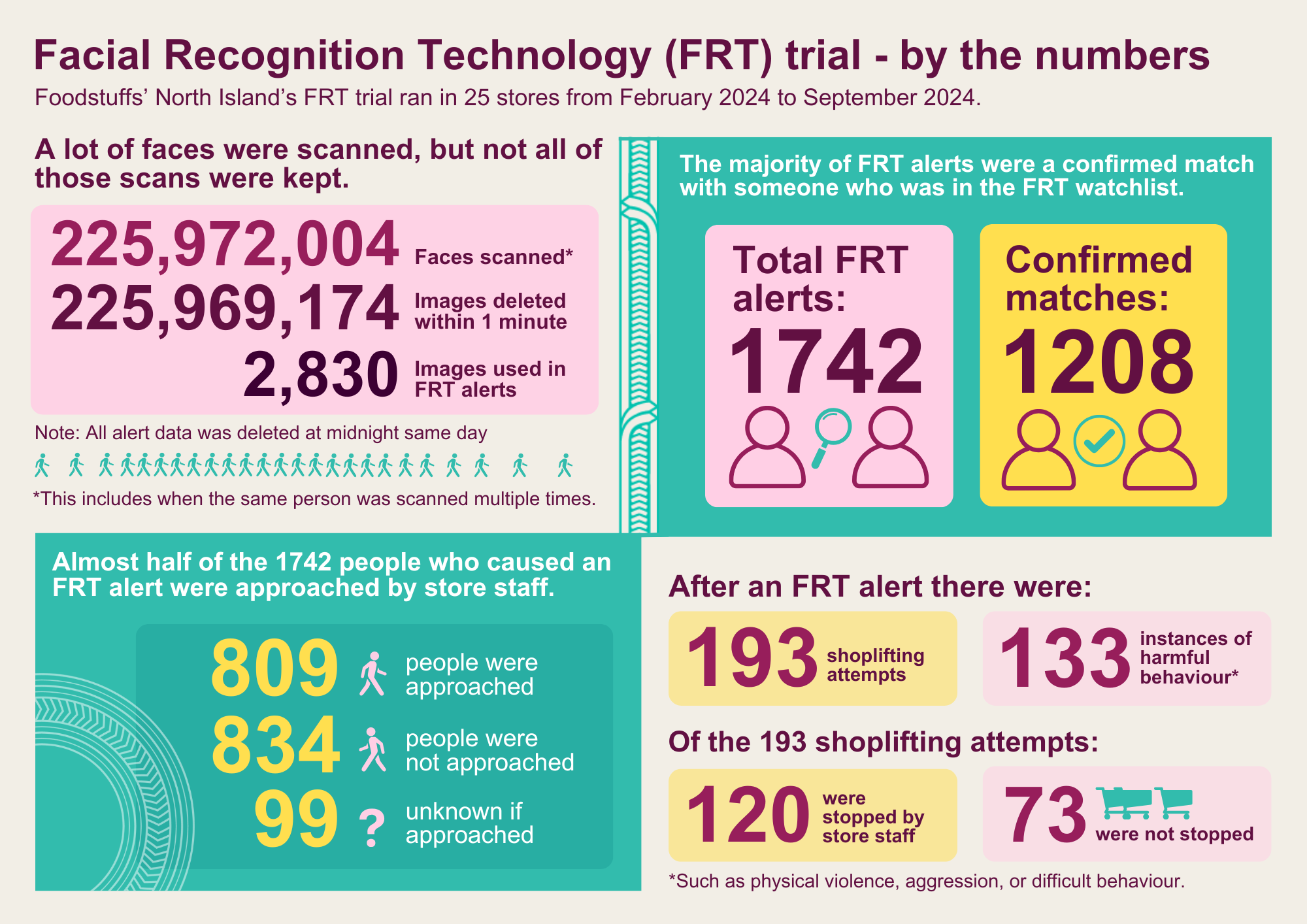
Privacy Commissioner says trial provides useful lessons for businesses considering facial recognition technology

The facial recognition technology (FRT) trial carried out by Foodstuffs North Island (FSNI) last year complies with the Privacy Act, a review by the Office of the Privacy Commisioner has found.
Privacy Commissioner Michael Webster released the findings of his office's inquiry on FSNI's facial recognition technology model that was trialled from February to September 2024.
"Our Inquiry covers the specific privacy issues as they applied to FSNI's operating model for live FRT during the trial and has found that it complied with the Privacy Act," the inquiry's conclusion read.
According to the inquiry, while the level of privacy intrusion was high because every visitor's face was collected, the safeguards in place reduced it to an acceptable level.
"Foodstuffs North Island designed the privacy safeguards used in the trial with feedback from my Office. This has provided some useful lessons for other businesses which may be considering using FRT," Webster said in a statement.
Among the main privacy safeguards in place were designing the system to only identify people who had engaged in seriously harmful behaviour, and then immediately deleting images that did not result in a positive match.
Match alerts were also verified by two trained staff, while access to the FRT system and information was restricted to authorised personnel only.
Employees were also not permitted to add images of children, or people thought to be vulnerable to their watchlist, which cannot be shared between stores.
"Some improvements will also need to be made by FSNI before the use of FRT is made permanent or expanded to more stores," Webster said.
"These focus on ensuring the documented processes and system settings are updated to match what happens in practice, including ongoing review of the use of FRT to make sure its use is justified as an effective tool for reducing serious harm offending."

FSNI said the Office of the Privacy Commissioner's findings confirm the trial's success.
"Privacy has been at the heart of our trial. We have worked closely with the OPC and listened to their feedback," it said in a statement.
"We welcome the OPC's feedback on areas for improvement and will carefully consider their recommendations, including the need to monitor accuracy, before we make any decisions about future permanent use."
FSNI carried out the trial for FRT last year across 25 stores following a sharp increase in retail crime in stores, including violent and aggressive crime.
A separate review by Scarlatti revealed that the trial was able to reduce serious, harmful behaviour by an estimated 16%.
Retail NZ lauded FSNI for the time and effort it put into the trial, as well as acknowledged the inquiry of the Office of the Privacy Commissioner.
"We will be taking time to review the details of the Privacy Commissioner's report to understand how we can best support Retail NZ members with guidelines on how to use FRT responsibly," said Retail NZ Chief Executive Carolyn Young in a statement.
Justice Minister Paul Goldsmith also said the commission's findings are "great news for businesses" considering the technology.
"I expect our Ministerial Advisory Group will continue to look at this technology as an option to be used more widely and engage with the sector on it," Goldsmith said in a statement. "I'll be encouraging the MAG to take this report into serious consideration."